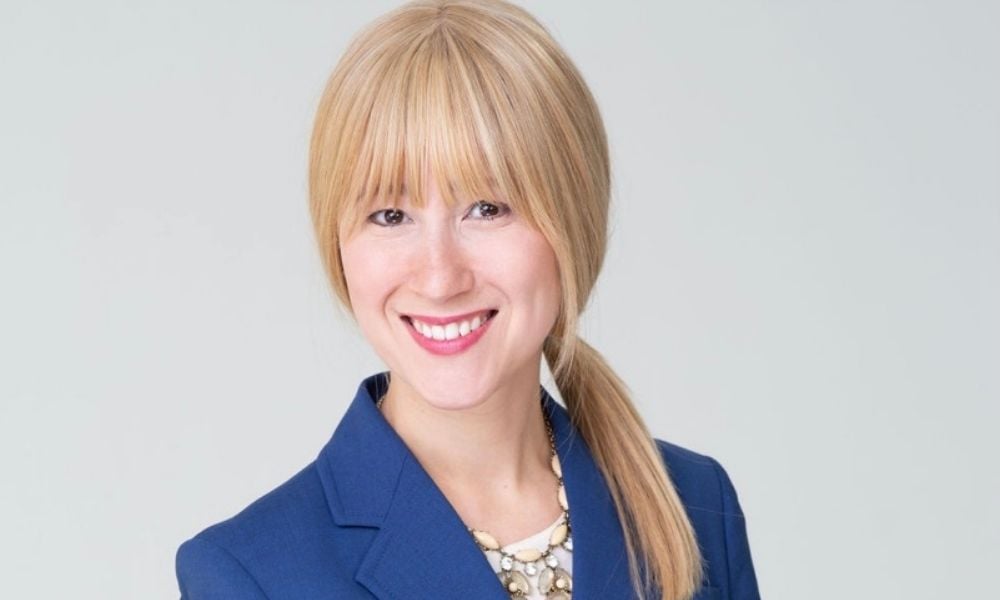
'People will feel supported when they do not have to hide what they are going through,' Dales says

The pandemic has greatly affected legal careers as many parents have struggled to advance or maintain their current practices because of childcare obligations. Litigation lawyer Sophia Irish Dales says parents have become isolated, exhausted and lonely and flexibility and long-term thinking are crucial for providing support.
“Parenting is something that people in every industry have to deal with it, and it says a lot about our values and where the profession is going when we can openly talk and support people going through this,” Dales says.
Pre-existing systemic problems where women were typically responsible for childcare responsibilities and not holding high levels of leadership have become more apparent, and employers have a significant role in supporting parents, she says.
Dales says that new parents face a range of emotions, including missing their work-life, the guilt of leaving a new baby, and whether they made the right decision to return to work.
“Transitioning back is a really vulnerable time,” she says. “Most people will feel that it’s a huge life change and suddenly your work looks different than it did before your leave because you feel very different.”
After the birth of her daughter in 2019, Dales says she moved from Ottawa to Toronto with her husband in 2020, so they could both manage their litigation practice and childcare responsibilities with more family support.
Dales says employers were skeptical of her commitment to law and litigation practice as a new mum, and interviewers queried how she would manage her childcare responsibilities, making her feel like a liability.
“I felt disillusioned and isolated with that experience,” she says. “I was really frustrated because I was worried that would happen and that I would meet up against the barrier of being a new parent and trying to keep going in the first 10 years of my practice and growing in the field. I always thought to myself, would you be asking this question to a male candidate or a male parent?”
Her worries shifted when she interviewed with her current firm, Waddell Phillips, and her parenting was not an issue. “It didn’t come up in my interview,” she says. “I could tell the firm values having women at the top.”
Dales says that the working environment, expectations, and how the firm values lawyers are critical. “People will do better and feel supported when they do not have to hide or downplay what they are going through.”
Dales will be moderating an event hosted by the Toronto Lawyers Association on “parental leave and practicing law.” She says she was inspired to have a forum of lawyers with different perspectives discuss parental leave and what it means to be a parent practicing law to support lawyers going through a similar transition understand they are not alone and can reach out to people.
“Many people are concerned that there isn’t a place for them; they’re not going to be able to keep going and have to leave the practice to raise their family.”
Panel speakers will share resources and information about the challenge of being a parent practising law. Dales says the new parent toolkit through the Law Society of Ontario’s The Justicia Project has some great policies, including planning and structuring when transitioning from parental leave.
Dales receives support from her husband and equally shares family responsibilities, which is still challenging. For example, she says her extended family cannot help when her daughter falls ill because she feels guilty and worried about possibly exposing them to COVID-19.
“Some people don’t even have that and it’s just them. It’s just their career and their time from work that they have to take to be with their children.”
Support can also be reaching out to other lawyer parents, which Dales says she has done frequently to gain insight into long-term career thinking instead of feeling stuck in the moment of hardship. For example, reaching out to Erin Cowling, one of the panel speakers, helped her tremendously when she was in her job search while a new mom.
Employers also need to understand some employee parental issues and be more sensitive to them, so the panel includes a section on legal entitlements around parental leave to understand the concerns and obligations, Dales says.
“How they manage the leave entirely is pretty important for supporting parents,” she says. “Are they hyper-focused only on billing models versus looking at the whole person and the whole contribution of the lawyer?”
She says employers’ parental leave policies must include all parents, including same-sex couples and people adopting, because it is a long-term investment to have a policy that is inclusive, comprehensive and easily accessible.
“There’s a whole bunch of different ways that families are made up now. It’s not a cookie cutter traditional model of family and diversity needs to be in parental leave policies.”
People might not want to ask individually to avoid being labelled as complacent and only interested in taking parental leave, so Dales says drafting a policy is critical.
She says it is essential for new parents to not pre-decide their situation and give themselves time to process the recent changes and get back into practice.
“It’s not going to happen in one day or one week, it takes time, and so be mindful of what you’ve just been through and what your body and mind have been through, and the expectations of yourself,” she says. “I wouldn’t be doing the great work that I get to do now had I not had my daughter, taken some big risks and changes and found a group of people that share my values.”